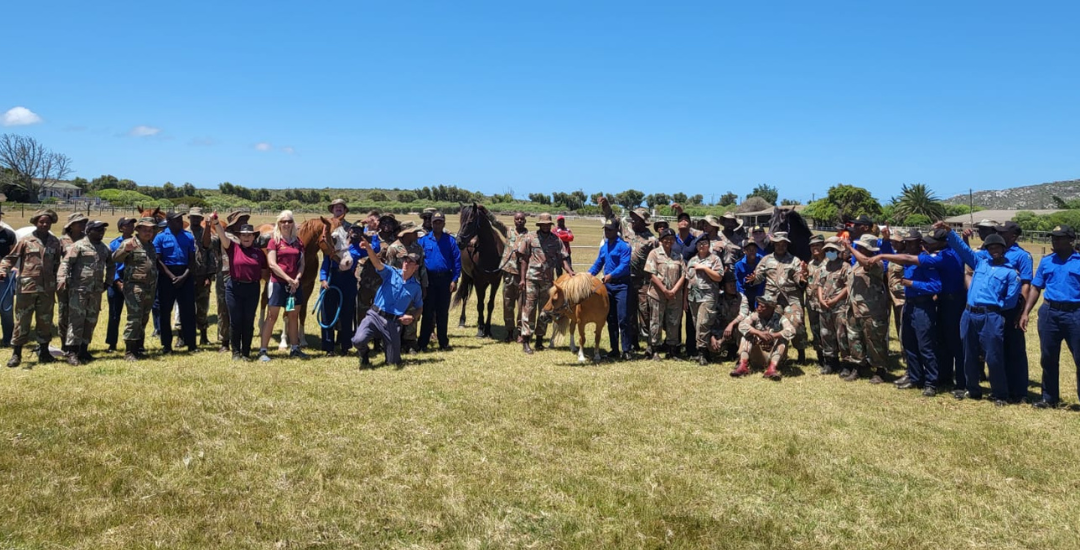Recently, prof Lindy Heinecken and prof Sandra Swart (Faculty of Arts and Social Sciences), together with colonel dr Laetitia Olivier (Faculty of Military Science) have taken their academic skills from the classroom to the stables.
Prof Heinecken is the vice-dean of research and a sociologist in the Faculty. Her research is focused on armed forces and society, with a specific interest in civil-military relations. Prof Swart is an environmental historian from the Department of History, who studies the relationship between people and animals. Colonel dr Olivier is a military strategist and lecturer at the Military Academy.
For military academies, educational training is their core focus but ensuring that officers are trained with the necessary leadership skills is equally important. As a potentially dangerous and life-threatening career, the officers need to have developed certain characteristics to cope with stressful conditions.
Equine Facilitated Leadership Training (EFLT) is an ideal way to develop these skills. According to prof Heinecken, “One of the most important character traits of an officer as a leader is having the physical and moral courage to control fear under stressful conditions. Self-control, the ability to stay calm, and foster cooperation and cohesion under times of stress are critical in an operational context. Similarly, officers must have the flexibility to resolve problems under unpredictable circumstances. On a personal level, an officer must be able to deal with setbacks and criticism, develop self-confidence and foster the trust of subordinates to be an effective leader. EFTL is a widely recognised form of experiential learning that develops these traits and abilities in leaders.
The five-day EFLT programme was held at the West Coast Military Equestrian Club in January 2023, and it involved various exercises with horses on interaction and communication.
The first day of the course began with setting the foundation for officers to become accustomed to the behaviour of horses and to identify how horses communicate with each other in a herd. They learned about observation and gathering intelligence, and how horses behave as both prey and herd animals.
On day two, the goal was to develop “esprit de corps” which refers to a spirit of comradeship and enthusiasm within the military unit. Officers learned to establish a relationship with the horse, cultivate trust, and encourage cooperation with the horses. This involved an exercise in ‘join up’ with the horses.
Day three was about the rules of engagement. After learning the basics of equine behaviour and etiquette, they began to give the horses commands.
Day four emphasised command and control, leadership, and the capacity of the officers to use their leadership abilities to persuade the horses to perform a variety of complex tasks without resorting to force.
On the last day, the officers carried out a specific job where they had to use the knowledge gained during the week to get the cooperation of the horses and accomplish a goal, without physically touching the horse, but using only equine language.
Prof Heinecken provided lectures and practical exercises related to various topics including observation and gathering intelligence; how to communicate and build a relationship with the horse; the rules of engagement; and gaining the cooperation of horses. Prof Swart focused on what the horses can teach one about body language and leadership skills. Colonel dr Olivier provided the military context in terms of the value of this training for the future careers of the officers.
Prof Swart is the author of Riding High: History Humans and Horses in South Africa (Wits Univ Press), and she is eager to carry on providing lessons on what horses can teach us. Her next course, “Boss Mare”, will be offered at the Maties Equestrian Club on Stellenbosch Campus. Prof Swart said that the course is “designed for all students and staff to use body language assertively. It is a two-hour workshop, and my two mares are going to do most of the teaching!” Anyone interested can contact me (sss@sun.ac.za). It’s free!”

